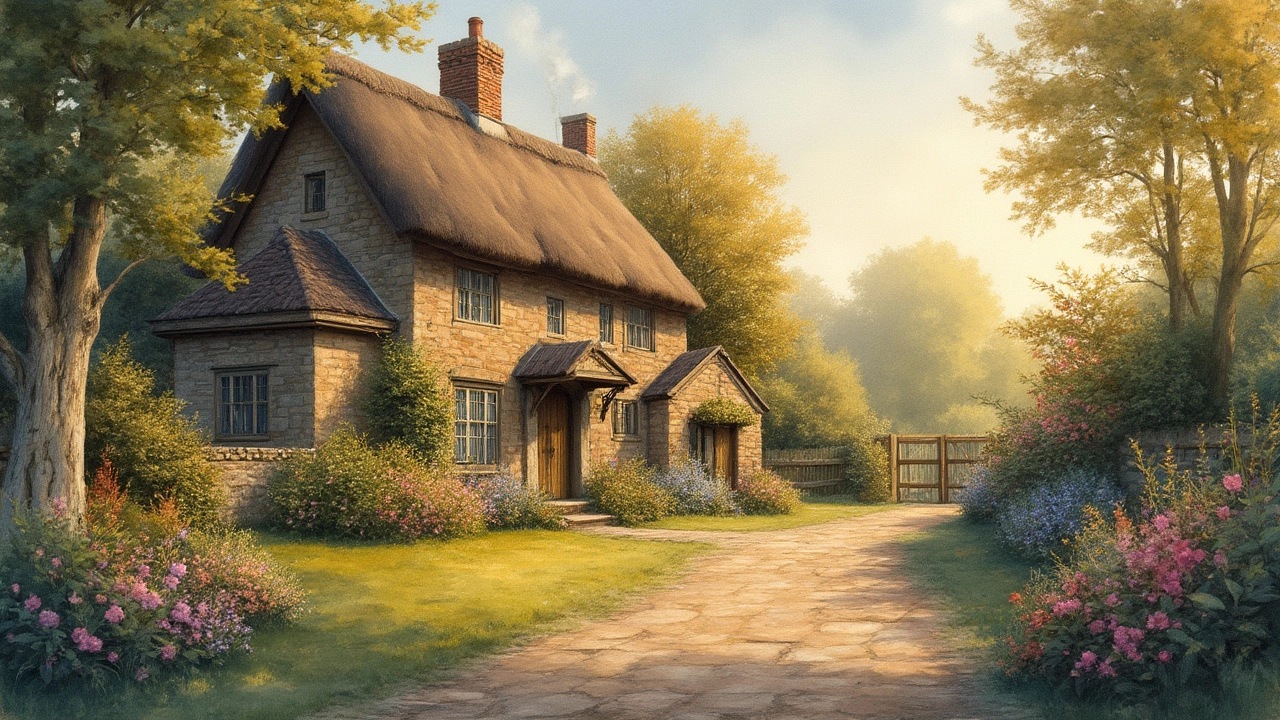Cottage Meaning: What a Cottage Really Means in the UK
If you’ve ever booked a "cottage" for a weekend getaway, you might wonder what exactly a cottage is. Is it just a small house, a holiday cabin, or something else? Let’s break down the meaning, origins, and modern use of the word so you know what you’re signing up for.
Where the Word Comes From
The term “cottage” dates back to the Middle Ages. It originally described a simple dwelling for peasants or farm workers. The word stems from Old French cotage, which itself came from cote meaning a small hut. Over time the idea shifted from a basic farm shelter to a cosy, often stone‑built home in the countryside.
What Makes a Cottage Different?
Today a cottage isn’t defined by a strict size limit, but by a few key features:
- Location: Most cottages sit in rural or semi‑rural areas—think the Cotswolds, Lake District, or coastal villages.
- Construction: Traditional cottages often have stone walls, thatched roofs, or timber frames. Modern holiday cottages may use brick or even prefab panels, but they keep a “cottage‑style” feel.
- Scale: They’re usually smaller than a typical family house, often two or three bedrooms, a living room, and a kitchen that doubles as a dining space.
- Character: You’ll find features like exposed beams, fireplaces, low ceilings, and a sense of charm that you don’t get in a bland hotel room.
These traits set cottages apart from “houses” (which can be any size) and “cabins” (which are often more utilitarian and found in wooded or mountain settings).
In the UK tourism market, the word cottage carries a promise of authenticity. When you book a cottage, you expect a space that feels lived‑in, with local quirks and a touch of history.
Types of Cottages You’ll Meet
Not all cottages look the same. Here are the most common types you’ll encounter on booking sites:
- Thatched cottage: Thatched roofs give a fairy‑tale vibe. They’re popular in Devon, Norfolk, and Cornwall.
- Stone cottage: Thick stone walls keep the place warm in winter and cool in summer. Look for them in the Yorkshire Dales.
- Seaside cottage: Usually a converted fisherman's dwelling, these often have sea‑views and a breezy feel.
- Converted barn: Modern interiors inside a historic barn shell. High ceilings and open‑plan layouts are common.
Each type has its own set of amenities, but most holiday cottages include essentials: heating, a fully equipped kitchen, and Wi‑Fi. Some go all‑in with hot tubs, wood‑burning stoves, or even a private garden.
Why Travelers Choose Cottages
There are three big reasons people prefer cottages over hotels or apartments:
- Privacy: No shared corridors or noisy hallways. You have the whole place to yourself.
- Local experience: Staying in a cottage often puts you right in the middle of a village, giving you a chance to chat with locals, shop at a tiny bakery, or wander the nearby footpaths.
- Value for money: For families or groups, a cottage can be cheaper than multiple hotel rooms, especially when you cook your own meals.
Because of these perks, cottage stays have surged in popularity, especially after 2020 when people started craving space and a sense of home while traveling.
Quick Tips for Booking Your First Cottage
Ready to try a cottage holiday? Keep these pointers in mind:
- Check the size – make sure the bedroom count matches your group.
- Read the amenities list – some cottages don’t have a dishwasher or washing machine.
- Look at the location map – you might need a car if the nearest bus stop is miles away.
- Know the check‑in process – many cottages use lockboxes or self‑check‑in, so you’ll need a phone number for the host.
- Ask about extra fees – cleaning charges, linen hire, and deposits can add up.
Following these steps helps you avoid surprises and lets you focus on the relaxing vibe that makes cottage stays special.
In short, a cottage is more than just a small house. It’s a piece of British heritage, a cosy hideaway, and a convenient base for exploring the countryside. Whether you’re after a romantic weekend or a family adventure, knowing the true meaning of “cottage” helps you pick the right spot and enjoy a genuine UK experience.

The Story Behind Cottage Names: Origins, Meaning, and Charm
Ever wondered why cozy holiday homes are called cottages? Discover the true origin, history, meaning, and why the word 'cottage' feels so inviting.
